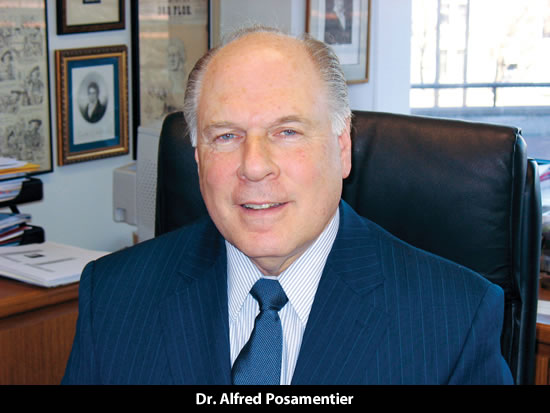THE MATH COLUMN
The Irrepressible 10989 … and Others!
By Alfred Posamentier, Ph.D.

There are many oddities in mathematics that can motivate research and provide entertainment. We offer one here, which will leave the reader to discover why this oddity works; however, it will also provide the reader with a cute little “trick” to share with friends. For example, suppose you ask your friends to write any four-digit number on a piece of paper as long as the difference between the first and last digits is greater than 1. Then have them interchange the first and last digits. Next, they are to subtract the smaller from the larger of these two numbers. Once again, interchange the first and last digits of this resulting subtraction, and then add the previous two numbers. They will have gotten the number 10989.
To illustrate how this works, we shall select a random four-digit number where the units digit and the thousands digit differ by more than 1. Suppose we will select the number 3798. Following the described procedure, we will interchange the first and last digits to get the number 8793. We then subtract these two numbers: 8793 – 3798 = 4995. Once again, we interchange the first and last digits to get 5994, and then add this to the previous number: 4995 + 5994 = 10989, as predicted!
Let’s try this trick with the five-digit number 58632. When we interchange the first and last digits, we get the number 28635. We now subtract these two numbers: 58632 – 28635 = 29997. We then interchange the first and last digits to get 79992. Now adding the last two numbers: 29997 + 79992 = 109989. This will always be your final result regardless of which five-digit number we began with.
If you want to further oppress your friends, have them select a six-digit number and follow the same procedure and they will always find that the end result will be 1099989. Starting with a seven-digit number, the result will analogously be 10999989. This then continues on with the same pattern for larger numbers. The trick can generate some genuine interest in the nature of numbers and of course make mathematics come alive. #
Alfred S. Posamentier, Ph.D., is the Executive Director for Internationalization and Sponsored Programs, Professor Emeritus, Mathematics Education and Former Dean, CCNY-City University of New York.
